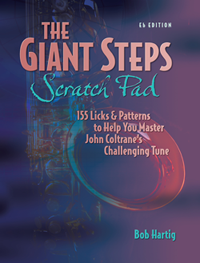The headline for this post is a bit deceptive. I’m really not interested in offering one more definition of jazz, or of discussing elements such as swing, syncopation, improvisation, blue notes, and so on. All of that has been abundantly covered in a bazillion books on jazz history, jazz theory, and jazz musicians.
A better title, though a more confusing one at first glance, might be, “What ISN’T Jazz?” It’s a question I’ve contemplated off and on. In that respect, I guess I’m no different from a multitude of other jazz musicians who have pondered the same issue over the years and ventured their opinions. Often you don’t hear the question expressed as a question, but as a conviction delivered with some heat: “That isn’t jazz!”
Let me say up front that I consider the topic of what is and isn’t jazz to be pretty academic. I’m more fascinated by the fact that some people get so passionate about defending a sacred ideal, some essence of jazzness, than I am by the subject itself.
Yet I have to confess that I find the same attitude rearing up in me on occasion–times when it bothers me to hear the word “jazz” used to describe something I wouldn’t consider to be even close to jazz. Improvised music, quite possibly; jazz, no.
So what am I, an elitist? If I am, I’m certainly not hardcore about it. Frankly, the intensity and hair-splitting that I’ve witnessed over the jazz/not-jazz issue has struck me as ridiculous, not to mention pointless, since it’s one of those debates that will never be settled.
That being said, I think the word “jazz” does get used too freely at times.
Case in point: I’ve played in lots of church worship teams over the years. Most of them have involved a lot of white folks playing guitars. Nothing wrong with that, but I cringe whenever I hear someone say, “Let’s jazz it up.” It’s kind of like hearing a mariachi accordionist say, “Let’s rock and roll!” What does it mean to “jazz it up”? I’m not sure, but I can testify that the results I’ve witnessed have never resembled jazz. Musicians who rarely if ever listen to jazz, let alone practice it, aren’t going to just suddenly produce it like Bullwinkle pulling a rabbit out of the hat.
So here I am, caught between two extremes. On the one hand, I can be a jazz racist, aggressively and vehemently defending the purity of the form (according to my ideal of it) and getting my undies all in a bunch over musical miscegenation. On the other hand, I can adopt so inclusive a perspective that the word “jazz” can mean just about anything under the sun, and consequently mean nothing at all.
It seems like there ought to be a less polarized option. Maybe there is. If so, finding it is probably best begun by defusing some of the negativity inherent to this topic. Coming from a jazz purist, the words, “That’s not jazz!” come across as an indictment. Upon hearing Weather Report in concert, Ben Webster is reported to have flown into one of his famous rages, walked onstage, and overturned Joe Zawinul’s electric piano. Such behavior is an extreme, but it captures the attitude of those who are so entrenched in an ideal that they judge and attack whatever doesn’t match up.
It doesn’t have to be that way. It shouldn’t be that way. How can any two people have a decent, productive discussion with that kind of Hatfield-McCoy mentality?
So let me be plain: When I say that something isn’t jazz, I’m not saying it’s bad music. Neither am I saying it’s good music. I’m not making value judgments at all. I’m just saying that I don’t consider the music I’m hearing to fit under the jazz umbrella. That’s all. Why try to make something be what it isn’t? Why not just let it be what it is and recognize that, if it’s done well, it has its own legitimacy?
Distinguishing between jazz and non-jazz involves at least a certain amount of subjectivity. That’s certainly true of me as I share a few of my own thoughts on the topic. With that acknowledgment, I’d like to address what I think are a few misconceptions about jazz:
* IMPROVISATION. Some people use the word “jazz” to describe extemporaneous playing. But while improvisation is a crucial hallmark of jazz, it’s not an exclusive one. Rock musicians improvise. Bluegrass musicians improvise. Classical musicians improvise. Beethoven wove melodies and harmonies out of thin air long before Louis Armstrong and Sidney Bechet ever played a blue note.
* THE BLUES SCALE. Playing the blues scale is not the same thing as playing jazz. Playing the blues scale is playing the blues scale. The blues scale and blue notes are components of a good jazz vocabulary, but they’re only a part of it, and, as with improvisation, they’re not exclusive to jazz. Rock guitarists use the blues scale extensively.
* HARMONY. The chords associated with jazz are usually quite colorful due to the use of upper tones and creative voicings. Ninths, elevenths, and thirteenths are normative, along with various chord alterations. In jazz, a V7 chord is rarely just a V7 chord; keyboard players and guitarists add upper extensions as a matter of course. While simple triads are used from time to time, jazz is not a triadic idiom. It is vertically complex, giving rise to sophisticated voice leadings.
That’s one big reason why non-jazz musicians who decide they’re going to “jazz up” a piece of music usually wind up sounding hokey rather than hip. Conceptually, they don’t have the harmonic (and rhythmic) know-how to pull it off. If that’s you, don’t let me discourage you from making the attempt. Rather let me encourage you, while you’re in the process, to learn a bit about jazz harmony and voice leading. There’s plenty of knowledge that’s available on the topic both in print and online. This Wikipedia article is a good place to start.
* HORNS. Adding a sax or trumpet to a tune, or even using that tune to showcase a horn player, does not automatically result in jazz.
* TUNES. Jazz is not a matter of the song that’s played but of how it’s interpreted. Playing “In the Mood” or “Take the A Train” doesn’t mean that a band is playing jazz. It means they’re playing melodies and chord changes that were written in the Big Band Era, but stylistically, the way a tune is handled might be closer to a polka than to jazz.
I could easily add to the above list, but what I’ve written is enough to get the idea across. Again, though, the topic of what is and isn’t jazz is prone to subjectivity. It’s safe to say that at some point, a piece of music–or rather, how that piece gets interpreted–crosses a jazz/non-jazz line. But different people, including and especially jazz musicians, will have different ideas about where that line lies.
That’s one reason why I don’t work myself into a lather over whether, for example, the stuff that Kenny G. puts out is jazz. Does it really matter? Kenny’s music may not be my personal cup of tea, but I have a hunch that if you hired the guy for a standards gig, he’d make it through the evening just fine. As it stands, what he does for a living beats delivering pizzas.
As for the debate over what is and isn’t jazz, a more fruitful question to ask is, do you like what you hear? Do you like what you’re playing? Then enjoy it and don’t worry too much about defining it. It may or may not be jazz, but good music is good music no matter what you call it.

